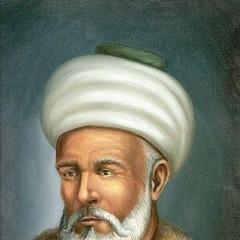Adam Smith Quotes - Page 8

Adam Smith (2007). “The Wealth of Nations: An Inquiry Into the Nature and Causes of the Wealth of Nations: With an introduction by Jonathan B. Wight, University of Richmond”, p.400, Harriman House Limited
Adam Smith (2012). “The Theory of Moral Sentiments”, p.13, Courier Corporation
Adam Smith, James R. Otteson (2004). “Adam Smith: Selected Philosophical Writings”, p.11, Imprint Academic
Adam Smith (2007). “The Wealth of Nations: An Inquiry Into the Nature and Causes of the Wealth of Nations: With an introduction by Jonathan B. Wight, University of Richmond”, p.62, Harriman House Limited
Adam Smith (2007). “The Wealth of Nations: An Inquiry Into the Nature and Causes of the Wealth of Nations: With an introduction by Jonathan B. Wight, University of Richmond”, p.311, Harriman House Limited
Adam Smith, James R. Otteson (2004). “Adam Smith: Selected Philosophical Writings”, p.22, Imprint Academic
Adam Smith (1869). “Essays On, I. Moral Sentiments: II. Astronomical Inquiries; III. Formation of Languages; IV. History of Ancient Physics; V. Ancient Logic and Metaphysicis; VI. The Imitative Arts; VII. Music, Dancing, Poetry; VIII. The External Senses; IX. English and Italian Verses”, p.14
Adam Smith (1869). “Essays On, I. Moral Sentiments: II. Astronomical Inquiries; III. Formation of Languages; IV. History of Ancient Physics; V. Ancient Logic and Metaphysicis; VI. The Imitative Arts; VII. Music, Dancing, Poetry; VIII. The External Senses; IX. English and Italian Verses”, p.10
Adam Smith (1819). “An Inquiry into the Nature and Causes of the Wealth of Nations”, p.262
Adam Smith (1869). “Essays On, I. Moral Sentiments: II. Astronomical Inquiries; III. Formation of Languages; IV. History of Ancient Physics; V. Ancient Logic and Metaphysicis; VI. The Imitative Arts; VII. Music, Dancing, Poetry; VIII. The External Senses; IX. English and Italian Verses”, p.10
Adam Smith, William Playfair (1811). “An inquiry into the nature and causes of the wealth of nations”, p.26
Adam Smith (1843). “An Inquiry Into the Nature and Causes of the Wealth of Nations With a Life of the Author: Also a View of the Doctrine of Smith, Compared with that of the French Economists, with a Method of Facilitating the Study of His Works, from the French of M. Jariner”, p.28
Adam Smith (1869). “An Inquiry into the Nature and Causes of the Wealth of Nations, Volume 2”, p.473
Adam Smith (2016). “The Wealth of Nations: the Great Master”, p.173, VM eBooks
Adam Smith (1843). “An Inquiry Into the Nature and Causes of the Wealth of Nations With a Life of the Author: Also a View of the Doctrine of Smith, Compared with that of the French Economists, with a Method of Facilitating the Study of His Works, from the French of M. Jariner”, p.142
Adam Smith (1827). “An Inquiry Into the Nature and Causes of the Wealth of Nations”, p.1
Adam Smith, Laurence Dickey (1993). “Wealth of Nations (Abridged)”, p.95, Hackett Publishing
Adam Smith, William Playfair (1811). “An inquiry into the nature and causes of the wealth of nations”, p.13
Adam Smith, William Playfair (1811). “An inquiry into the nature and causes of the wealth of nations”, p.190
1776 An Inquiry into the Nature and Causes of the Wealth of Nations, bk.2, ch.3.
Adam Smith (1869). “An Inquiry into the Nature and Causes of the Wealth of Nations, Volume 2”, p.437
Adam Smith (2016). “The Wealth of Nations: the Great Master”, p.70, VM eBooks
Adam Smith (2010). “An Inquiry Into the Nature and Causes of the Wealth of Nations”, p.85, Cosimo, Inc.






